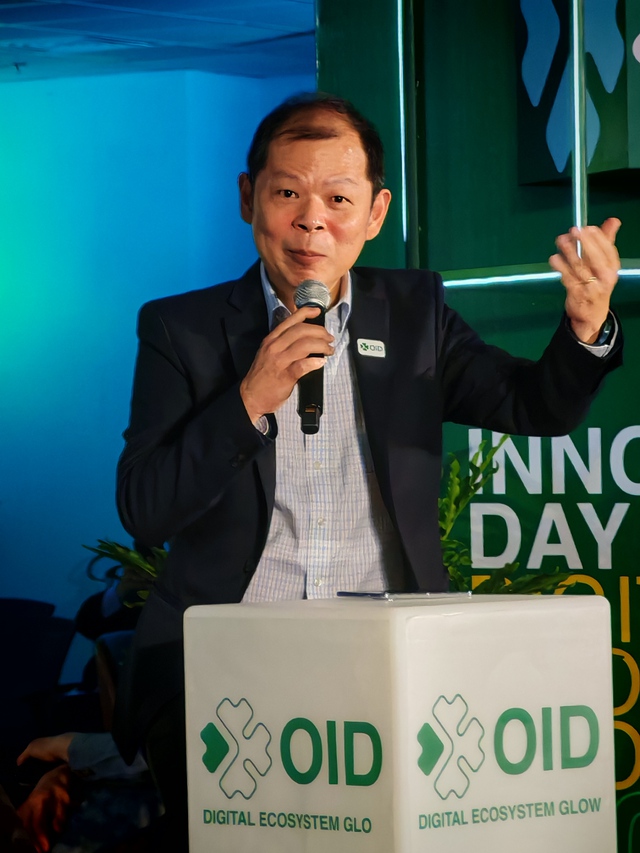
AI, blockchain to drive Vietnam’s green, digital transformation
Breakthrough technologies, especially artificial intelligence (AI), blockchain, and regulatory sandboxes, are set to become the pillars of Vietnam’s twin strategy for green and digital transformation, experts said at the Open Innovation Day (OID) 2025 held in Ho Chi Minh City on the weekend.
As the world enters the age of dual transformation, Vietnam is asserting itself as one of Southeast Asia’s most dynamic economies.
The challenge now is how to sustain growth amid climate change and a technological revolution that is reshaping every sector.
Experts at OID 2025 believed the key lies in the strategy 'Technological breakthroughs driving green and digital transformation' -- also the theme of this year’s program, initiated by the National Agency for Technology Entrepreneurship and Commercialization Development under the Ministry of Science and Technology.
AI: Infrastructure, human challenges
Experts at OID 2025 identified AI as a cornerstone of the transformation journey, yet Vietnam still faces three major bottlenecks: infrastructure, human capital, and institutional frameworks.
Zhou Jun, managing director of BytePilot Technologies Co. Ltd., noted that Vietnam needs a robust fiber-optic cable network and data centers capable of meeting the massive computing power demanded by AI.
At present, domestic cloud computing remains heavily dependent on foreign providers such as AWS and Google Cloud.
However, AI development goes far beyond hardware. Technology corporations like Huawei are introducing liquid-cooling systems for data centers that can cut energy consumption by up to 96 percent, paving the way for more sustainable digital infrastructure.
Strategically, experts recommended that Vietnam avoid chasing costly large language models and instead focus on smaller, purpose-built models that serve practical domestic needs.
More importantly, end users -- from government officials to households -- must be empowered to directly use AI for energy efficiency and smart operations.
This 'demand-driven AI' approach, they argued, holds the true potential for transformative impact.

Andrew Khaw, Samsung Asia’s regional director for government affairs in Southeast Asia and Oceania, shares his insights at OID 2025. Photo: Kim Thoa / Tuoi Tre
Blockchain a trusted foundation of data economy
Alongside AI, blockchain has emerged as a critical infrastructure for ensuring transparency and reliability in the digital economy.
In an era when AI depends on 'clean data' to function effectively, blockchain provides the foundation to verify data provenance and guarantee immutability and verifiability.
According to Huy Nguyen, head of data technology at the National Data Association, blockchain is addressing long-standing bottlenecks in agriculture, logistics, and trade -- sectors still struggling with data traceability and transparency.
With blockchain, governments, businesses, and citizens can share a common 'source of truth,' reducing costs, building trust, and improving operational efficiency.
To scale this technology nationally, pundits emphasized the need for stronger data connectivity among ministries and sectors, supported by a consistent policy framework that fosters national confidence.
In this sense, blockchain becomes not merely a technology but a key component of smart governance.
Government as 'lead user'
Andrew Khaw, regional director for government affairs and ESG at Samsung Asia, covering Southeast Asia and Oceania, offered a clear message: “Don’t give us money, give us jobs.”
He stressed that governments should become lead users, commissioning startups and tech firms to tackle national challenges rather than simply offering funding support.
This approach, he explained, not only promotes innovation but also allows solutions to be tested in real-world conditions, paving the way for commercialization.
To foster such experimentation, experts proposed expanding the Regulatory Sandbox -- a controlled testing environment where businesses can pilot new models and products free from existing regulatory constraints.
This is seen as a necessary step, particularly in fast-evolving sectors like AI and data, where innovation often moves faster than legislation.
Complementing this, the tri-sector alliance model -- linking government, business, and academia -- is viewed as a proven 'formula for success.'
The government leads through transparent policies and cross-sector coordination; businesses drive practical innovation; while universities and research institutes pivot toward applied programs, supporting commercialization and training a skilled workforce.
Vietnam is now considered well-positioned to implement AI Hub or AI Factory models, drawing on international experience to link technology with small- and medium-sized enterprises (SMEs) and spread innovation into traditional industries.
International experience in developing AI ecosystems
Germany: AI hubs have been established to support SMEs. Despite being a highly industrialized nation, Germany still retains many traditional sectors. These hubs act as bridges between technology firms and traditional industries, encouraging the exchange of ideas and market insights.
South Korea: The government has identified key sectors for the public sector to lead, thereby creating conditions for private-sector innovation. When the state takes the initiative in AI development, domestic enterprises and talent are strongly motivated to engage.
Taiwan: The government provides funding and encourages universities to serve as a bridge between technology and industry. This is crucial since traditional sectors often remain fragmented, while large corporations lack the time and resources to support smaller players.
Kim Thoa / Tuoi Tre news
Link nội dung: https://news.tuoitre.vn/ai-blockchain-to-drive-vietnams-green-digital-transformation-103251027104505355.htm